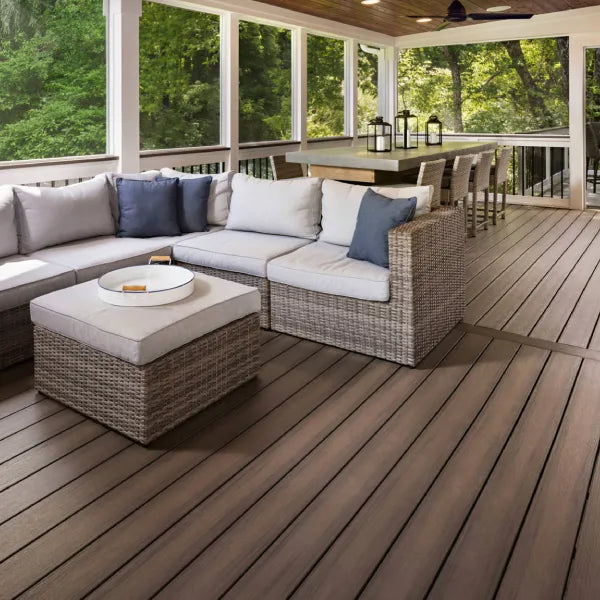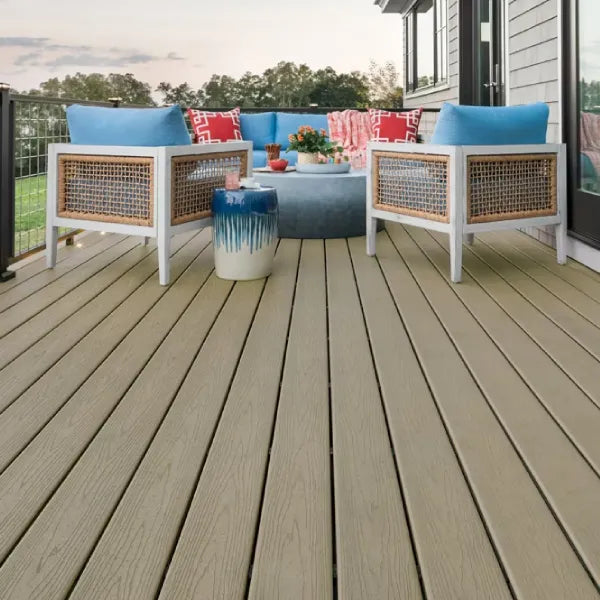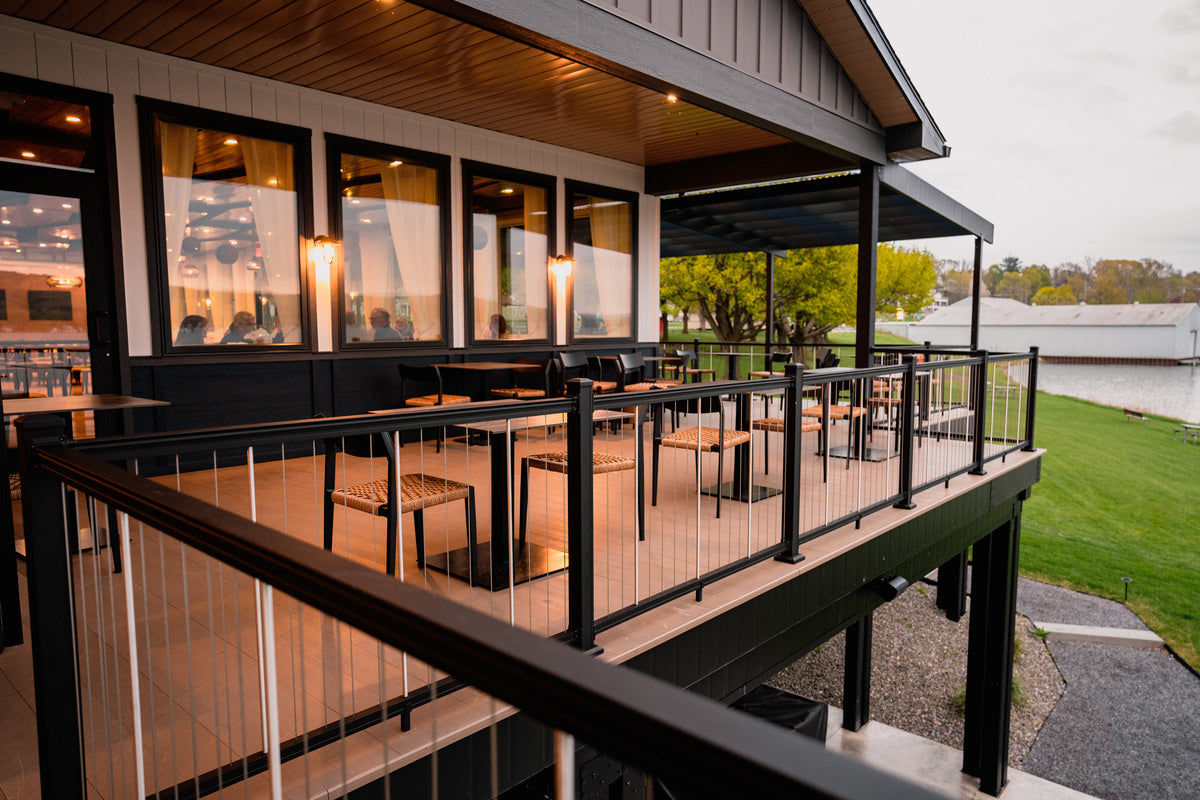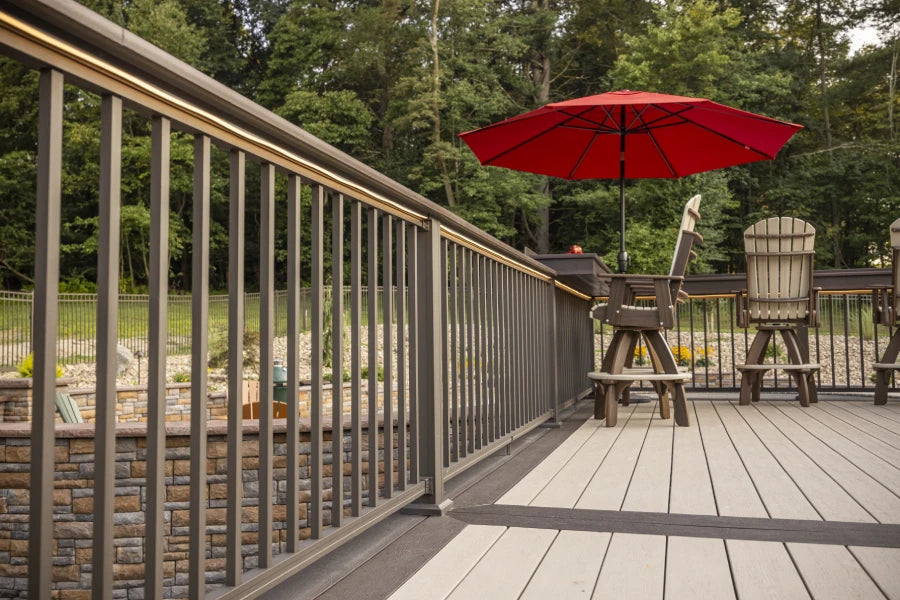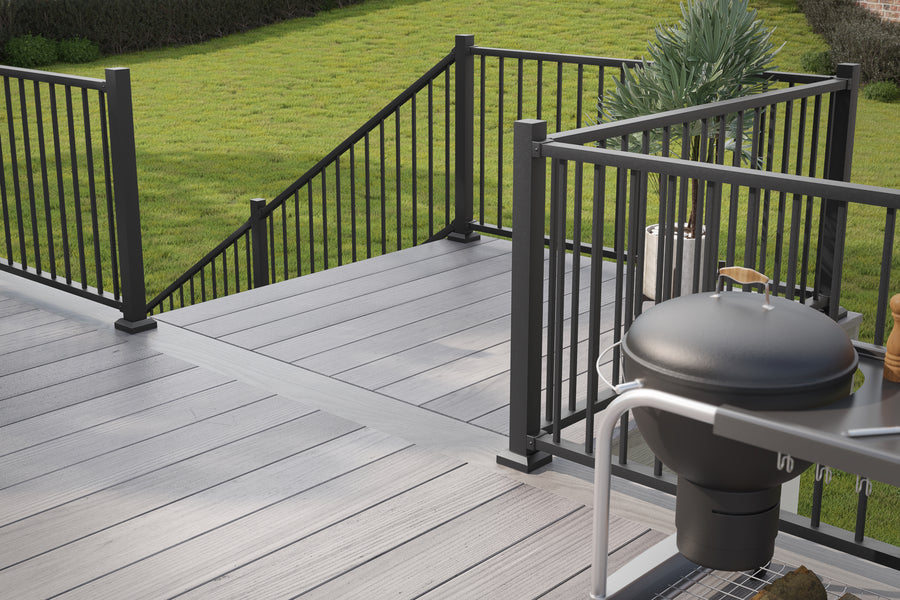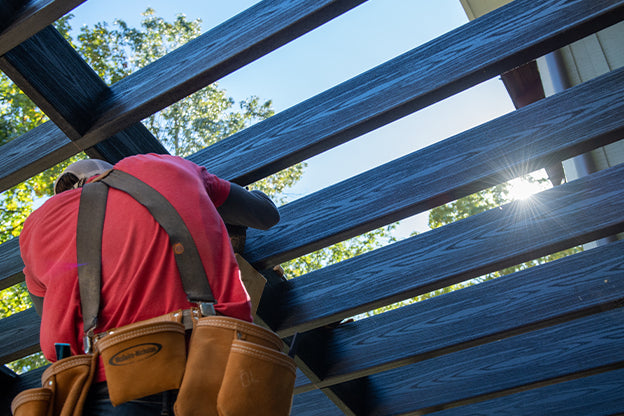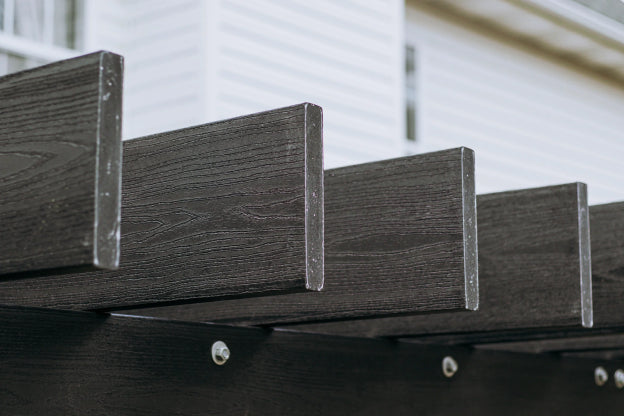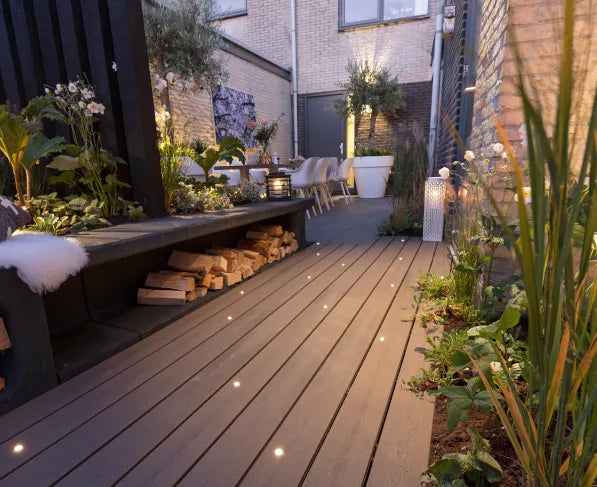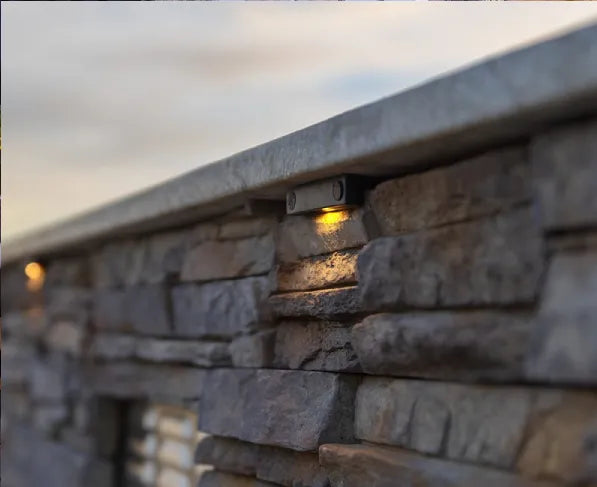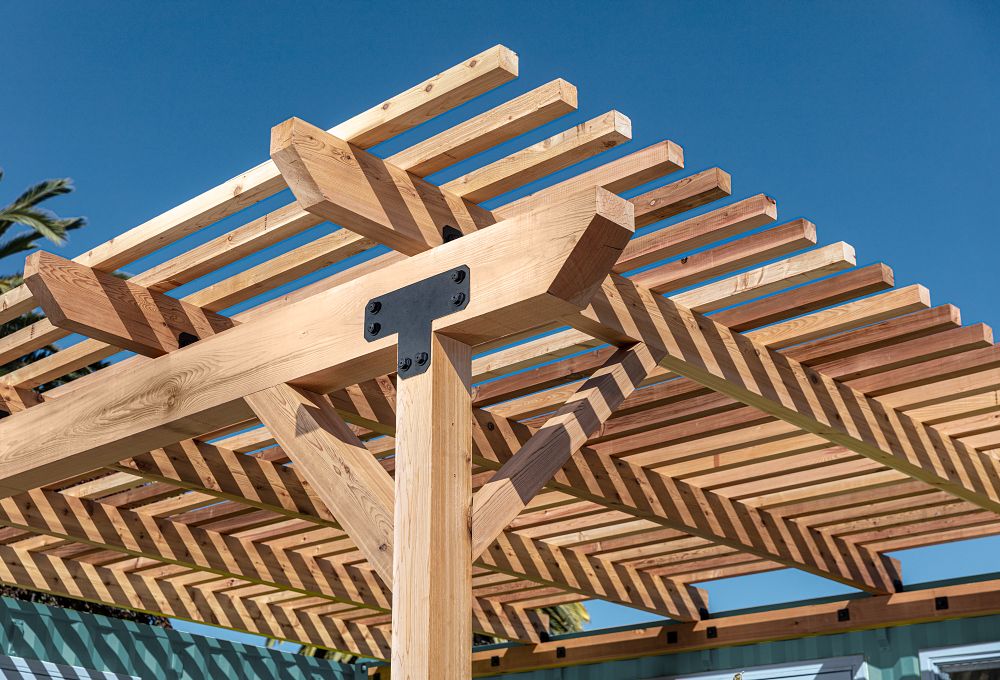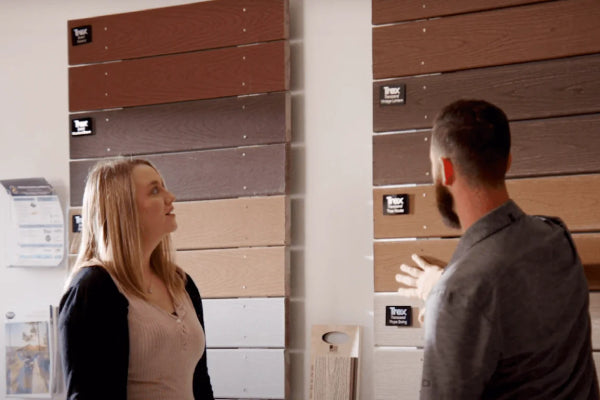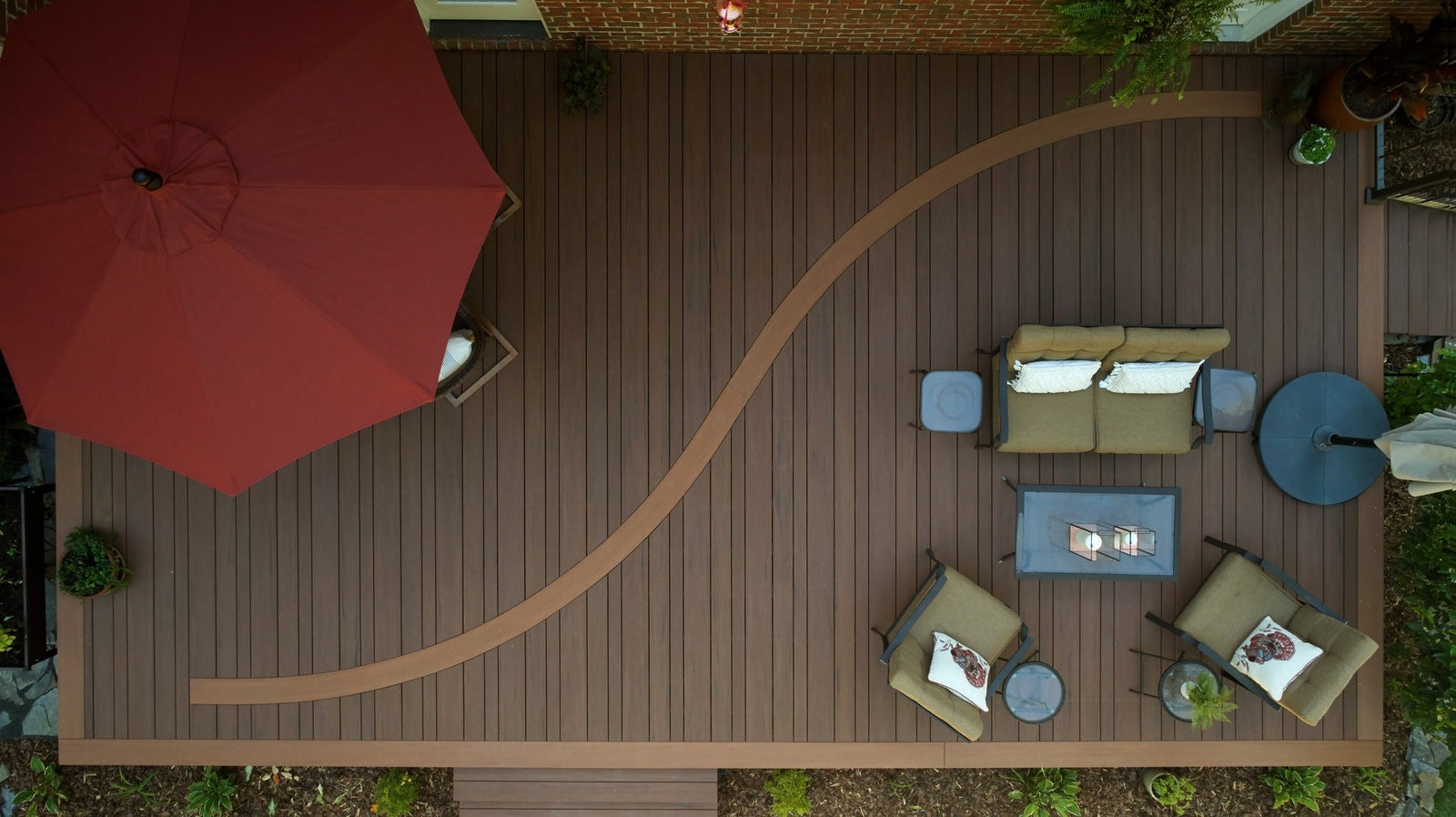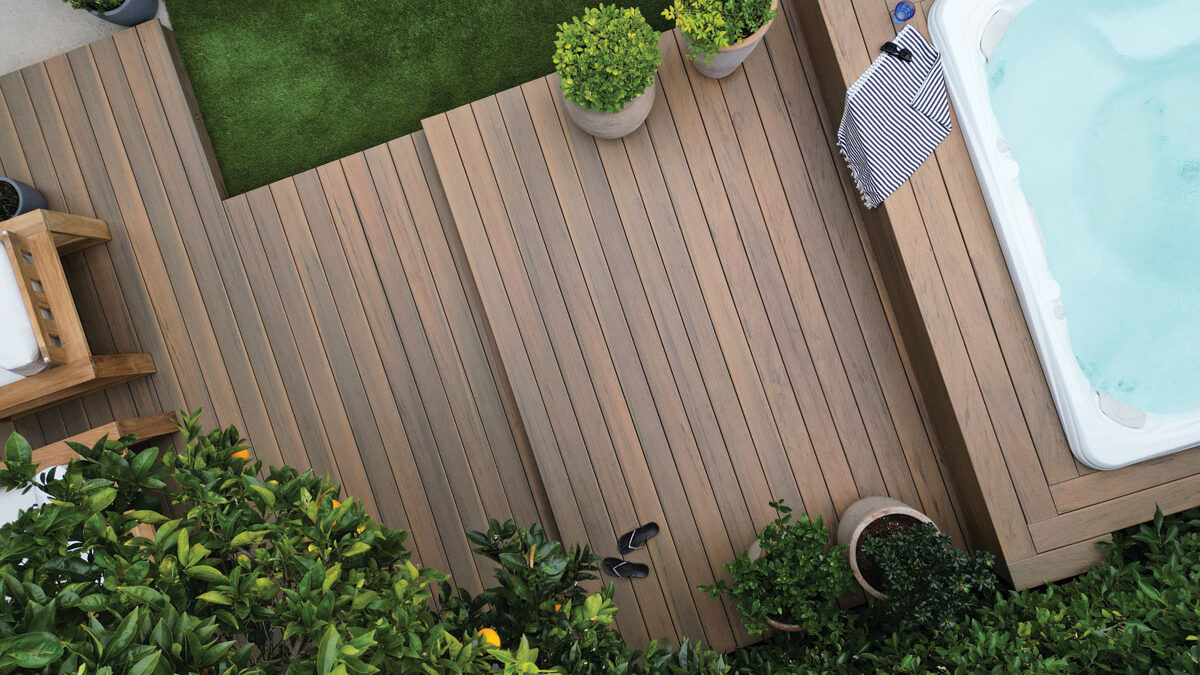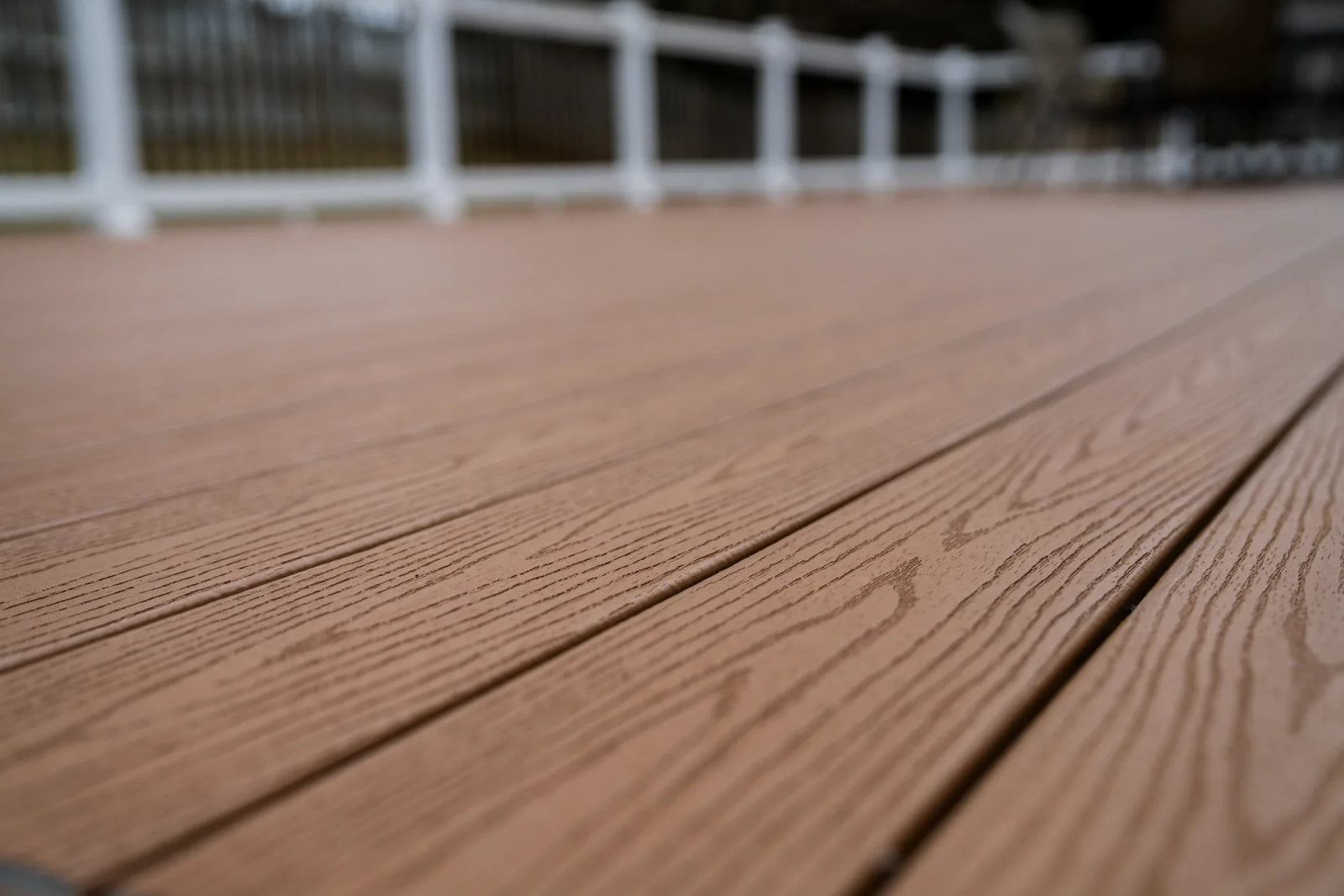Composite or Wood: Which Decking Material is Right for You?
Choosing the right decking material can be challenging with so many options available. Composite and wood are the most popular choices, each with distinct pros and cons. Understanding the key differences between composite decking vs. wood can help you make an informed decision for your outdoor space. Let's take a look at the pros and cons to help you create the perfect outdoor space.
Composite Decking
Pros
Low Maintenance: One of the biggest perks of composite decking is its minimal maintenance. Unlike wood deck, you don't need to stain, paint, or seal it regularly. Plus, it's resistant to rot, decay, and insect damage, saving you both time and money on annual maintenance. Composite decking requires very little upkeep compared to real wood.
Longevity: Composite decking is built to last. It doesn't fade, stain, or develop mold easily, and you won't have to worry about it warping, cracking, or splintering over time. This means your deck will look great for many years with minimal effort on your part.
Environmentally Friendly: If you're looking for a green decking material, composite decking boards fit the bill. It's made from recycled materials, which makes it a more sustainable choice compared to traditional wood decking.
Variety of Colors and Styles: Composite decking comes in a wide array of colors, mimicking the natural beauty of real wood. From warm, honeyed tones that mirror aged oak to cool, weathered grays that echo the driftwood on the beach, there's a perfect shade to complement your home's style. These decking boards can resemble wooden deck aesthetics with none of the maintenance required by real wood.
Versatility and Durability: Composite decking is super versatile and suitable for various environments, including residential, marinas, and docks. It’s designed to absorb moisture far less than wood decking, making it more resistant to water damage. Even when walking barefoot, composite decking boards stay smooth and comfortable underfoot, making them a safe choice.
Warranty: One of the significant advantages of composite decking vs. wood decking is its extensive warranty, providing peace of mind and assurance of quality. These warranties typically cover a wide range of issues, including fading, staining, scratching, and structural integrity, ensuring that the deck maintains its appearance and performance over time. This kind of coverage is rarely matched by warranties for wooden decks.
Cons
Higher Upfront Cost: The initial costs of composite decking are typically higher than those of a wood deck. However, when comparing composite decking vs. wood, the cost savings over time are clear. With minimal maintenance costs and longer lifespan, many homeowners find composite decking and wood comparisons tilt in favor of composite for long-term value.
Not Ideal for Painting or Repainting: If you love the idea of changing your deck's color every few years, composite decking might not be the best choice. Unlike a wooden deck, which can be repainted, composite decking doesn’t hold paint well. This lack of flexibility can be a downside if you like to refresh your outdoor space's look frequently.
Potential for Scratching: While composite decking is durable, it's not entirely scratch-proof. Furniture, pets, and heavy foot traffic can sometimes leave marks. It's worth considering if your deck will see a lot of activity.
Composite Decking is the Low Maintenance Option
Despite these drawbacks, composite decking remains a fantastic option for those looking to minimize regular maintenance and maximize longevity. It's also eco-friendly and stylish! Check out this informative video: Advantages of Composite Decking from Decks & Docks.
Composite decking vs. wood is a common comparison for homeowners considering a new deck, and for a good reason. Composite decking offers a compelling combination of low maintenance and long-lasting beauty. However, wood decking remains a timeless option for those who value natural aesthetics and affordability. When evaluating composite vs wood decking, it’s important to consider not just the look and cost but also factors like maintenance, lifespan, and environmental impact. Let's take a look at the difference.
Expert Advice
When selecting a decking color and type, it's important to think about the overall look you want to achieve. Do you prefer a cohesive look that matches your home's exterior, or are you aiming for a striking contrast? Consider whether you like the appearance of streaked decking boards or if a solid, monochromatic look suits your style better. With both composite and wood decking, your choices are virtually endless.

Wood Decking
Pros
Natural Aesthetics: There's something about the look and feel of real wood that's hard to beat. Wood decking brings a rustic charm and a warm, natural appeal to any outdoor space that other materials just can't replicate. If you love the feel of real wood decking, nothing beats the genuine grain and texture.
Affordability: One of the main attractions of wood decking is its cost. It's typically more affordable in terms of material costs compared to composite decking, making it a great option if you're working within a budget.
Easy Installation and Repair: Wooden decks are relatively easy to install and repair. For those who enjoy DIY projects, this can be a significant advantage. Minor repairs and adjustments are often straightforward and manageable.
Cons
High Maintenance: On the flip side, wood decks do demand a fair amount of upkeep. To keep it looking its best, you'll need to regularly stain, seal, and sometimes repair it. If neglected, wood decking can suffer from rot, decay, and insect damage.
Shorter Lifespan: Compared to composite decking, wood decking doesn't last as long as composite decking. It's more susceptible to fading, staining, warping, and splintering over time, which can mean more frequent replacements and repairs.
Environmental Impact: Another consideration is the environmental impact. Sourcing real wood decking contributes to deforestation, which isn't as eco-friendly as composite decking made from recycled materials.
Weighing the Beauty & Upkeep of Wood Decking
Wood decking offers a timeless charm and natural warmth that's hard to replicate with other materials. It's also generally more affordable and easier to install yourself, making it a budget-friendly option for DIY enthusiasts. However, wood decking comes with its fair share of drawbacks. Regular staining, sealing, and repairs are necessary to prevent rot, decay, and insect damage. Additionally, a wood deck has a shorter lifespan compared to composite decking materials, as it's more prone to fading, warping, and splintering over time.
When comparing composite decking vs. wood, it's important to consider not just aesthetics but the ongoing time, effort required for maintenance, and material costs.

Ready to Build a New Deck?
Both composite and wood decking come with their own set of pros and cons. Your choice will ultimately depend on your priorities, commitment, and the maintenance costs you're willing to take on. If you prefer something low-maintenance, durable, and sustainable, composite decking might be the way to go.
Ready to transform your outdoor space? Visit The Deck Store to explore our wide range of high-quality composite decking materials and get expert advice on your next project. Whether you're starting from scratch or updating an existing deck, we have everything you need to build the deck of your dreams.
 This item ships for FREE!
This item ships for FREE!